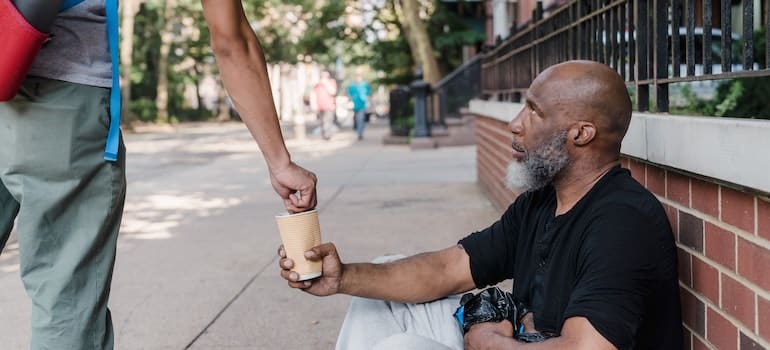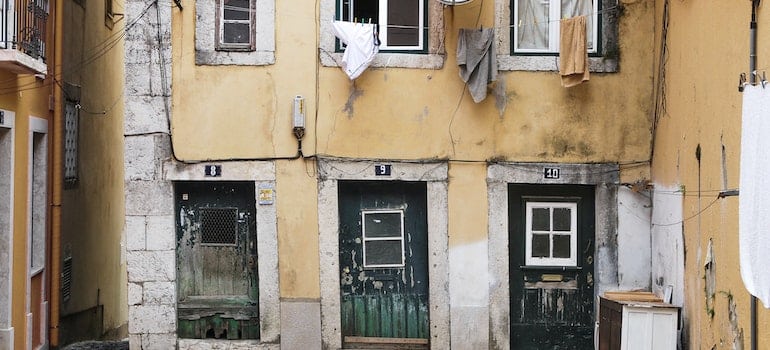Is addiction hereditary? The answer is complicated. Many factors play into why someone starts, continues, or stops abusing substances. Some of those factors are environmental and could occur to anyone. But others have to do with genetics and upbringing. This is why it’s not uncommon for children of addicts to become addicts themselves and later raise children who will become addicts. So if your parents spent a significant portion of your your life in a drug and alcohol rehab center WV, odds are you will do so too. However, nothing is set in stone. There is a way to break the cycle. Breaking the cycle of addiction in families is not always easy. But it it’s important to try if you want a better life for yourself and your children.
Why do addiction cycles happen in families?
You may have heard people refer to drug and alcohol addiction as a family disease before. There are two reasons for this: because someone’s addiction will almost inevitably affect their entire family and because addiction often runs in the family. But the reason for that is not as straightforward as you might think.

Is addiction hereditary?
Addiction is not hereditary in the traditional sense. If both your parents are A+, you will be too; if your parents are near-sighted, you will probably be too. But if both your parents are in cocaine addiction rehab WV, you won’t necessarily become an addict yourself. However, there are genetic factors at play. One of the things that plays a major role in substance abuse is a dopamine imbalance in the brain – if your brain underproduces dopamine, you will struggle with emotional regulation and be more prone to addiction. This is something that you can inherit from your parents.
Another way to “inherit” addiction is to be born addicted. If a mother abuses substances during pregnancy, the effects of those substances can be felt by the baby. This can cause changes in the brain even before birth. Newborns whose mothers use drugs during pregnancy sometimes actually experience symptoms of withdrawal immediately after birth. They don’t remember this later in life and many of them do end up breaking the cycle of addiction in families, especially if they are separated from their family until their parents stop using drugs. But the changes to their brain and body increase the risk that they will turn to substances themselves later in life.
Is addiction learned?
Most behavioral traits that you share with your family are not something you got through DNA – they’re simply what you learned from being around your family. Substance abuse can be one of those behaviors. If you grew up around parents, grandparents, aunts, and uncles who all depend on opioids to manage minor pain every day, you may think of this as normal. But addiction is not always about excess; sometimes, it’s about frequency. Just because your family members think they have control over their opiate use and don’t attend opiate addiction treatment in West Virginia, doesn’t mean they are not exhibiting symptoms of addiction. And if these symptoms are normalized in your environment, you may not realize you are doing something wrong when you start to mimic the behavior.

You can, therefore, “learn” addictive behaviors if they are common in your environment growing up. Even if you don’t, you may be more tolerant of early stages of addiction such as the occasional use of illegal substances, binge drinking, or the overuse of prescription medication. By repeating those behaviors, you can then teach them to your children. This is why breaking the cycle of addiction in families is so difficult – you often don’t even realize that you are perpetuating it.
Is addiction circumstantial?
Environment plays a big role in addiction. Easy access to substances, for example, increases the risk of addiction. So does a stressful job, an abusive relationship, triggering life events like a death in the family, and poverty. These are all risk factors for addiction that have little to do with genetics. So even if nobody in your family has a substance abuse disorder, you may still develop one. It doesn’t take much either.
Maybe you’ve just moved and all the stress is making it hard for you to sleep. So you start taking Ambien in the evenings. Soon enough, your body becomes accustomed to its effects so you start taking more than the recommended dose – now, you are in the early stages of addiction. If you seek help at an Ambien addiction rehab WV early enough, you can avoid the worst effects of addiction. But if the same circumstances come up again, can you say that you won’t take the same path?

According to research, genetics and environment have a roughly equal share in addiction. The genetics predispose you to addiction while the environment triggers it.
How addiction passes down through generations
You can have parents and other family members who struggle with addiction and never abuse substances yourself. Or you can have no family history of substance abuse and still become an addict. This is because addiction ultimately comes down to your unique circumstances and individual choices. But statistically speaking, people whose parents suffer from addiction are more likely to abuse substances themselves. This is due to some major risk factors that family members tend to share.
Genetic factors
Although there are no addiction genes, you can genetically inherit other traits that make you prone to addiction. Low dopamine levels are the main one; these can affect your mood, decision making, and habit forming. But you can also inherit mental illnesses – such as ADHD, depression, and schizophrenia – that correlate with addiction and require dual diagnosis treatment in WV. Finally, genetically determined traits like gender, pain tolerance, hormone levels, and more can alter the way substances affect you, causing you to need more of them and become addicted faster.

Intergenerational trauma
Trauma, physical or mental, is one of the biggest risk factors for addiction. It’s easy to understand how simple trauma (meaning one traumatic that an individual or group experiences) or complex trauma (meaning prolonged traumatic experiences of an individual or group) would lead to substance abuse: people often develop unhealthy ways of coping with trauma. But did you know that trauma can also be passed down generations?
A person’s experience with trauma will affect the way they parent. One obvious example of this is the cycle of abuse – children of abusers often grow up to be abusers themselves and thus traumatize their children. But intergenerational trauma does not have to be obvious or deliberate like that. It can be about being unable to emotionally connect with your children (which makes them feel unloved and unwanted), raising your children under a lot of stress because of your own anxieties, or teaching your children unhealthy coping mechanisms you picked up because of your trauma. A single traumatic event can thus affect generations and generations of a family.
Generational poverty
Poverty is one of the biggest indicators of future addiction. In the US, people who make $20,000 or less a year are three times as likely to abuse substances as those who make more than them. This may seem counterintuitive as drugs and alcohol can be quite expensive. But with poverty comes stress – the stress of food insecurity, joblessness, homelessness, discrimination, and more. This is why poor people often turn to substances. They may start with something cheap and easily accessible, like spirits. But if they don’t go into alcohol addiction rehab WV, their addiction can quickly escalate. And once addicted, they are likely to stay in poverty because earning and saving becomes significantly more difficult when you start prioritizing substances over everything else.

Just like you can inherit your parents’ trauma, you can also inherit your parents’ poverty. This generational poverty typically affects a family for decades and even centuries because of the accumulation of wealth which makes breaking the cycle of addiction in families especially difficult in the low-income population. Basically, if your parents are even moderately well-off, they will be able to provide you with a better upbringing, better education, and even financial support to give you a head start in life. But if your parents are poor, you’ll probably live in a poor neighborhood with poor schools that don’t set you up for success; your parents won’t be able to support you financially and you may actually end up paying off their debts instead. This all but guarantees you stay in poverty if you are born into it and the effect compounds through the generations of a family.
Breaking the cycle of addiction in families from outside
A cycle of addiction is sometimes difficult to see from the inside. A person who grew up seeing their parents binge drinking or overusing prescription medication and now continues to do so may not realize this is a sign of addiction. But as an outsider, you may have a more objective point of view. If you suspect that someone you know is stuck in a familial cycle of substance abuse, reach out and help (especially if children are involved). Sometimes, it takes a push from outside to get people to realize they have a problem. So here’s what you can do:
As a friend
Talk to your friend about any signs of addiction you’ve noticed in them or their family members. Don’t be judgmental; instead, offer support and show that you care. Be there for your friend when (and if) they decide to seek help – they may lose touch with their family over this decision so they’ll need you more than ever.
If your partner is addicted
You are in a better position to notice addiction in a partner than probably anyone else. So if your partner has a family history of addiction, be mindful of addictive behaviors you notice in them. Keep an open line of communication about this, though; otherwise, your partner might feel like you don’t trust them and become defensive. Take a moment to look up rehab for your loved one so the option is there when they’re ready. If you have a good relationships with your in-laws, try bringing up treatment to them as well.

As a therapist
If you are counseling someone who’s struggling with addiction and their family has contributed to that addiction in some way, then it’s best to address those family issues. Think about offering a few sessions of family therapy for addiction to repair the familial relationships and get everyone on the path to recovery.
As an outsider
As a colleague, teacher, pastor, or neighbor, you may feel like it’s not your place to meddle into the business of a family you are not particularly close to. But your inaction can inadvertently enable worse problems in the future. So try to break out of the mindset that someone else’s addiction is not your problem – if you can help, then you should. Be a friendly ear or a shoulder to cry on, talk to the person you suspect is addicted, and suggest they look for help. If you have any relevant experience, bringing it up can help your argument.
It is especially important to get involved when children are present in the home. When you suspect that a child in your surrounding is witnessing or even experiencing addiction, you should report potential neglect or abuse. Contact the relevant authorities – children’s services or the police. Early intervention can make all the difference in breaking a familial cycle of addiction or abuse.
Breaking the cycle of addiction in families from the inside
A family history of addiction only predisposes you to substance abuse. It doesn’t necessarily predetermine your life. You don’t have to follow in the footsteps of those that came before you. You and your children don’t have to suffer the way your parents or grandparents did. Instead, you can end the cycle for yourself and future generations. So what can you do to avoid the vicious circle?

Be aware of the risk factors
Knowing what puts you at risk from a disease can help you prevent it – people use sunscreen so they won’t get skin cancer or exercise regularly so they won’t become obese. You can similarly take steps to avoid addiction. Your family history is a risk factor you can’t change. But you can address other risk factors such as:
- co-occurring disorders: Some mental disorders that correlate with addiction also run in the families. If, for example, one of your parents suffers from ADHD, you might struggle with the same thing. To minimize the risk of needing stimulant addiction rehab WV in the future due to your mental illness, seek treatment for it.
- stress: One of the main reasons people turn to substances is because they don’t have other ways of dealing with stress. So if you’re worried about addiction, try minimizing stress in your life. Identify your main stressor and remove it if you can; change your job, quit school, or leave a toxic relationship. If you can’t do that, then at least talk to a professional about ways to cope with stress.
- patterns of addiction: If you are impulsive, if you struggle with self-control, and if you tend to overindulge in things you enjoy, you may have an addictive personality. Try to be conscious of this when using substances. Monitor your intake of alcohol, medication, and other drugs. If you notice that you are overindulging, seek help before it’s too late.
Think critically about your upbringing
Many people find it hard to face the idea that their parents hurt them. After all, we love our parents and our parents love us – surely, they wouldn’t do anything to harm us. So if they taught us something, we usually think of it as good or at least neutral. But childhood trauma is a lot more common than you think, especially in families with a history of addiction. So if our parents suffered from SUD, you’ll want to examine what they taught you. Ask yourself:
- Did your parents abuse you (emotionally, verbally, or physically)? Or did they direct such abuse at each other in your presence? How has this affected your self image? How has it impacted your understanding of healthy relationships?
- Did you parents neglect you? How has this influenced your ability to connect with others? Do you struggle with believing others care about you because of this?
- Did you parents rely on substances while you were growing up? Did they drink regularly or use drugs in your presence? Were you yourself taught to use substances to cope with pain or stress?
- What kind of values did your parents instill in you? Where do your priorities lie? And why?
- How did your parents deal with stress? Do you recognize any unhealthy coping mechanisms in them that you use today? Were you ever taught how to manage your emotions through therapy, exercise, and self-care? Or was the use of substances the only way to manage stress in your household?
Asking yourself these kinds of questions can lead you o reconsider things you may have thought were normal but are actually unhealthy. And once you’ve identified unhealthy habits and thinking patterns, you can break them.
Keep good company outside of your family
It’s important to remember that your family are not the only people in your life. You can and should form bonds with people you have no blood relation to. Make friends, date, maintain good relations with your co-workers, be active in your community. Interacting with different people will broaden your perspective; you can learn a lot from people who have different experiences from you and your family members. Furthermore, friends and partners can make for a good support system if your family doesn’t fill that role.

But choose your friends carefully. It’s no secret that many young people end up in marijuana rehab in West Virginia because they succumbed to peer pressure. Avoid people who might pressure you into something you don’t want; look for friends who will support an uplift you.
Learn to prioritize yourself
A huge part of breaking the cycle of addiction in families is about putting yourself and your well-being first. If your relationship with your family is what’s causing or worsening your substance abuse, then you need to set some boundaries. Move out of the family home, minimize contact with family members who abuse substances, or insist on rehab for yourself and the people you care about. And if all else fails, cut your losses. No matter how much you love your family, sometimes they are simply not good for you. When that is the case, it is in your best interest to take care of yourself first.
Breaking the cycle of addiction in families through prevention
The best way to break the cycle of addiction in a family is to never start abusing substances yourself. As a person with a family history of addiction, you may struggle more than the average person with avoiding substance abuse. But there are things you can do to give yourself a better shot.
- Educate yourself about addiction. The more you know about it, the better armed against it you are. So look up information on substance abuse, attend addiction prevention seminars, and talk to advocates or mental health professionals who work in the field of addiction. You can learn how addiction forms and what to do to avoid it.
- Seek help early. It’s best if you see a therapist – they can help you to cope with stress or mental illness and will be your best bet at a healthy and happy life without substances. Otherwise, you can turn to a trusted friend, educator, neighbor, or authority figure. Just tell someone if you are struggling before it’s too late; it’s much easier to prevent addiction than to treat it.
- Form relationships outside of the family. If you stay isolated within your family circle, you’re bound to fall pray to addiction. But it’s no better to have no one to rely on. So make sure you form strong bonds outside of your family. Be active in your community, go out with friends, participate in local events. Socialization is good for your mental health and therefore, a preventative factor for addiction.
- Be proactive with addiction prevention. In your case, addiction prevention won’t just happen. It’s something you’ll have to actively work on. So avoid company where alcohol or marijuana is the norm. Don’t take addictive medication if you don’t have to. Most importantly, take good care of your mental health.
Breaking the cycle of addiction in families through treatment
If prevention fails, don’t be discouraged. You can still break the cycle by seeking treatment for drug and alcohol addiction in WV. The therapy you receive will help you not only with getting sober but also with dealing with addiction in the family. You may even inspire some of your family members to follow in your footsteps. Just remember: help is out there if you just ask for it. There is no shame in admitting that you are struggling. You won’t be judged or dismissed; people who work in rehab centers are only there to make you better. If anything, you should be proud of taking steps toward sobriety. So don’t wait – the sooner you get help, the better your odds at success are.

Breaking the cycle of addiction in families for future generations
When the odds are stacked against you (as they are when you have a family history of addiction), sobriety can feel like a constant uphill battle. At some point, you will almost certainly be tempted to just give up. But keep in mind that you are not only doing this for yourself – breaking the cycle of addiction in families is vital for future generations. By ending the vicious circle, you are giving your children and their children and all the upcoming children in your family a better life. It has to end somewhere. Why not with you?



